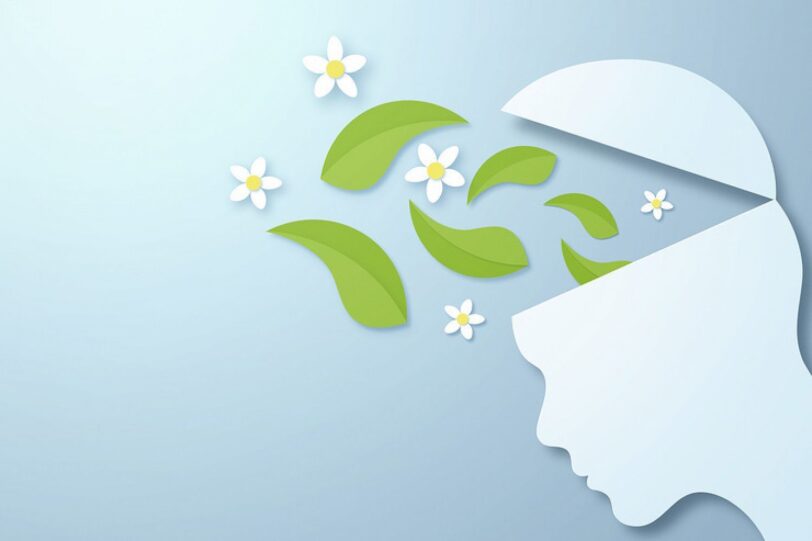
On this page
As we formally move into the Spring Season with flowers starting to bloom and warmer weather creeping in, we would like to offer some considerations for “mental health spring cleaning” tips.
As we formally move into the Spring Season with flowers starting to bloom and warmer weather creeping in, we would like to offer some considerations for “mental health spring cleaning” tips. In other words, some of the things we can do away with this Spring as we each consider our personal journey for positive mental health and well-being.
Reduce “bad” habits:
Humans have evolved to run on autopilot for many daily activities given the vast number of stimuli we have to contend with at any given moment. While our conscious brain focuses on the task at hand, our subconscious mind is running on autopilot to manage many other tasks at the same time and to do this, we must rely on fast automatic processes and habits. Some of these habits, however, are not healthy or helpful to our mental health.
What are some unhealthy habits to try to kick (and clean up) on your mental well-being journey? Smoking, stress-eating, procrastinating, self-medicating with substances, etc.
Reduce unhelpful thoughts:
Thoughts are often automatic themselves. And unfortunately, some of those thoughts may be hurtful and harmful and likely not true. Thoughts are not facts. Pay attention to the harmful unrealistic thoughts you say to yourself (e.g. ‘I won’t be accepted.” I’ll never be able to..[fill in the blank].” Etc.). Thoughts can be self-fulfilling prophecies. And just as negative thinking can prevent us from behaving in ways that make us feel better or act in ways to achieve a goal, positive thinking can motivate us to behave in ways consistent with our goals and values.
Reduce excuses to avoid working on your mental health.
In line with reducing unhelpful thoughts, do not give-in to excuses to avoid prioritizing your mental health. Your mental health is important and when you feel better mentally and emotionally, other aspects of your life (work, relationships, physical health) will reap the benefits too. Make time for relaxation, enjoyable activities, and connecting with your friends and family. And in particular for caregivers and healthcare workers – we all know you cannot care for others if you do not care for yourself.
Reduce Speed.
Today’s society is on fast forward. We pack our schedules and feel stressed by the self-imposed need to move a mile a minute. Take time to slow down. Notice how you are feeling and do a self-check if you need a break. If so, allow yourself 5-10 minutes to breathe, grab a cup of tea, take a quick walk outside, or to stretch your body. You will be better prepared to tackle the next few hours by slowing down for a moment and taking a well-deserved break. Slowing down also allows you to be present, more mindful, and savor pleasant moments. For example, try truly focusing and enjoying spending time with your kids, versus allowing your mind to be distracted by running through today or tomorrow’s to-do list.
Reduce Clutter
And yes – actually do some real-life spring cleaning. Getting organized and cleaning up your space can lift your mood as well. While no one truly enjoys cleaning, what they enjoy is the sense of accomplishment and feeling productive after the chores are done and being able to relax in a clean and organized environment. After cleaning and organizing your space, you may also feel like everything is once again “new,” which can add a sense of excitement or peace.
Written by: Dr. Jennifer Birdsall - CHE Services - Chief Clinical Officer



